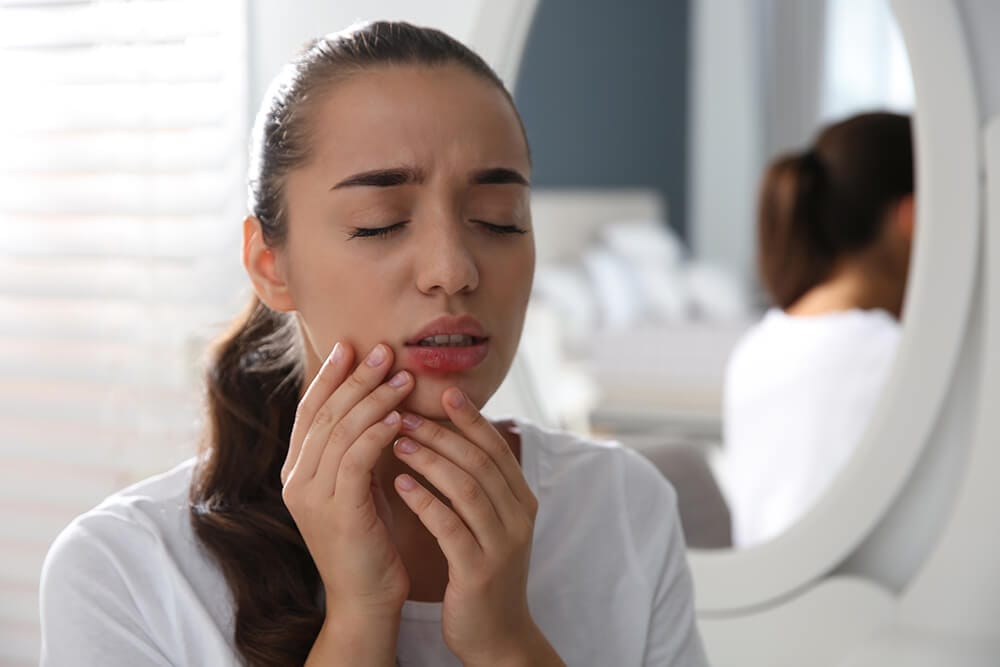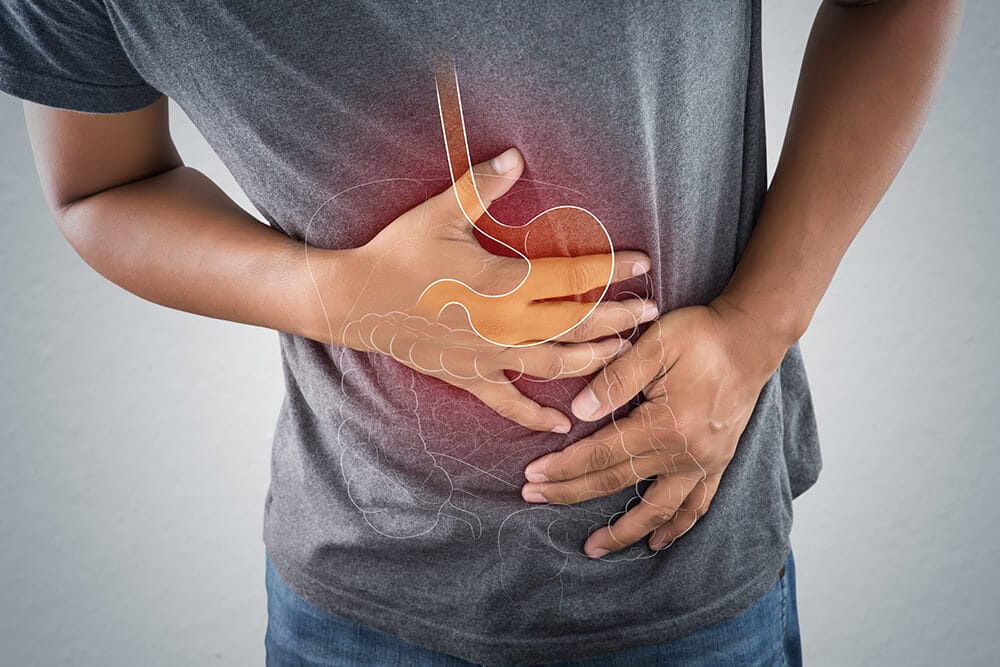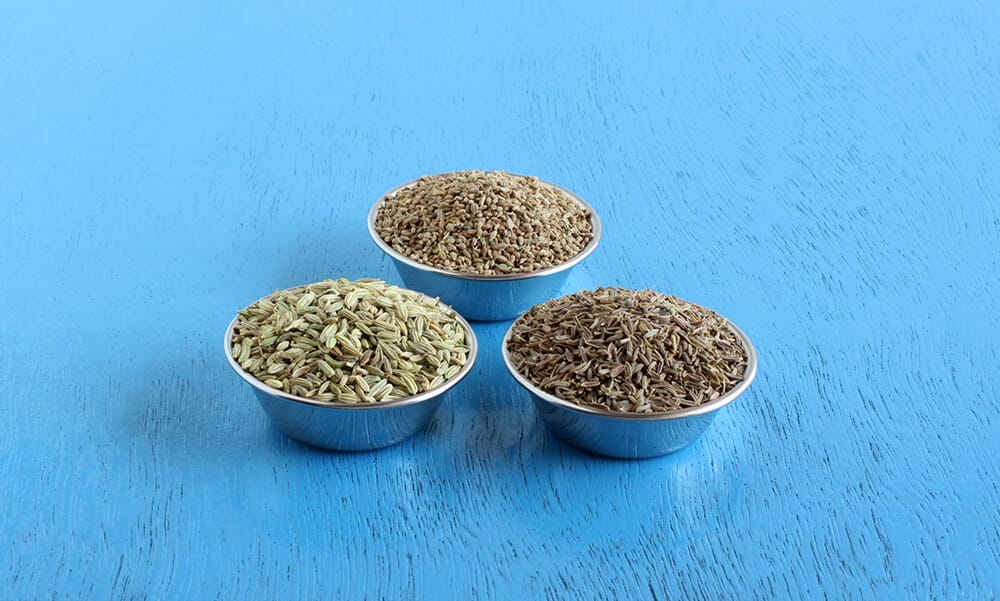
Mouth Ulcer Types, Causes, Prevention & Treatment
Overview of mouth ulcers
The small red or yellow coloured sores that you occasionally get inside your mouth are called mouth ulcers. They are usually formed on the insides of your cheek, on your gums, or on the roof of your mouth, also called palate. Mouth ulcers happen due to loss or thinning of lining tissues inside the mouth. An accidental biting of the inner cheek can also cause mouth ulcers. It takes around 10 days or upto two weeks for mouth ulcers to get better on their own. Some people might also have recurring mouth ulcers that are called aphthous ulcers. However, this happens in rare cases. Mouth ulcers can be round or oval in shape with a yellow-patch in the center. It is surrounded by a red area with inflammation. These are also called canker sores.
Causes of mouth ulcers
The major causes of mouth ulcers are constant constipation or indigestion, burn injuries from eating extremely hot food, and viral infection. Here are some other mouth ulcer causes that you can check:
Cheek biting
You can have mouth ulcers by accidentally biting the inside of your cheek.
Mouthwash
Sometimes, antiseptics present in mouthwashes can also cause sores in the mouth.
Fractured teeth
Rubbing your broken teeth inside your cheek is also a cause of mouth ulcers. You can also get mouth ulcers by ill-fitted dentures.
Vitamin B12 deficiency
Vitamin B12, iron and folic acid deficiencies are other common causes of mouth ulcers because vitamin B12 deficiency leads to formation of abnormally large blood cells in the body.
Toothbrush injury
Accidentally rubbing your toothbrush on your gums or on the insides of your cheek can also give mouth ulcers.
Oral antibiotics
Certain medications or oral antibiotics can cause allergies which may result in formation of mouth ulcers.
Microbial diseases
Bacterial infections in the body like chickenpox, tuberculosis, syphilis, and hand, foot and mouth disease can also be a mouth ulcer’s cause.
Blood disorders
Another reason for mouth ulcers could be blood disorders like leukemia and anemia.
Mouth cancer
Ulcers in mouth or excessive red patches inside the mouth can also be due to mouth cancer.
In addition to the above, other mouth ulcer causes include gastrointestinal disorders, skin rashes in mouth, food hypersensitivity, tobacco consumption, pregnancy, stress and illness.
Types of ulcers in mouth
The following are the common types of ulcers in mouth:
Aphthous Ulcers
When you get mouth ulcers frequently and they take a lot of time to go away, the condition is called recurrent aphthous stomatitis or aphthous ulcers.
Herpetiform ulceration (HU)
These mouth ulcers are a type of aphthous ulcers and look similar to the sores people get in herpes.
Minor canker sores
These are small mouth ulcers that do not cause a lot of pain and get better in 4-5 days.
Major canker sores
These are big mouth ulcers that can be extremely painful and have severe swelling and inflammation. Major canker sores usually get better in 2-3 weeks.
Symptoms of mouth ulcers
The following are the most common symptoms of mouth ulcers:
-
- Painful sores inside the mouth and swelling around them.
- Small red patches inside the mouth.
- Loss of appetite.
- Difficulty brushing or swallowing food.
- Difficulty having spicy or salty food.
How to prevent ulcers in the mouth?
Mouth ulcers can cause pain and it gets difficult to eat food properly. So, here are a few ways you can prevent ulcers in the mouth:
Maintain oral hygiene:-
Brushing your teeth twice a day and using mouthwashes can help maintain oral hygiene which is beneficial in preventing mouth ulcers. Make sure that you use a toothbrush with soft bristles to avoid ulcers.
Have a nutritious diet
Improper digestion and constipation can also be the reasons for mouth ulcers. Having a nutritious diet can help prevent various diseases and gastrointestinal disorders, which in turn reduces the risk of mouth ulcers. Also, avoid having spicy foods.
Rinse mouth with salt water once a day
Rinsing the mouth with salt water can help prevent bacterial infection and ulcers.
Avoid biting the inside of your mouth
You should also avoid biting the skin inside your mouth to prevent mouth ulcers.
Meditate or work out regularly
As you have already read above, stress can also be a reason for mouth ulcers. Meditating or working out regularly can help lower stress levels in the body and prevent ulcers.
Mouth ulcer home remedies
If you are wondering how to get rid of mouth ulcers, here are a few effective home remedies that you can try:
Honey
Honey has antimicrobial and wound healing properties that can reduce swelling and inflammation around mouth ulcers. You can apply honey on your mouth ulcers with your finger.
Clove oil
Clove oil also has antimicrobial properties that are beneficial in reducing pain and inflammation around mouth ulcers.
Baking soda
You can make a paste of baking soda by adding water to it and apply it on mouth ulcers to reduce pain.
Garlic
Garlic is also beneficial in treating oral infections. You can crush garlic clove and apply it on the mouth ulcers.
Turmeric
It is a powerful antiseptic agent that can help heal mouth ulcers.
When to consult a doctor for mouth ulcer treatment?
In most cases, mouth ulcers get better on their own and you don’t have to necessarily see a doctor. However, if the ulcers last for more than three weeks, you must consult a doctor who will conduct a biopsy to check any malignant disease. You should also consult a doctor for treating mouth ulcer in the following situations:
-
- If you have aphthous ulcers inside the mouth.
- If your mouth ulcers are spreading rapidly.
- If mouth ulcers are extremely painful and cause difficulty in eating food.
- If the ulcers are extremely red which could be a sign of bacterial infection in the mouth.
Diagnosis and treatment of mouth ulcer
Majority of the time, doctors diagnose mouth ulcers through a visual examination. In case of aphthous ulcers, the doctor will check various factors like hormonal changes, injury inside the mouth, consumption of antibiotics, stress, nutritional deficiency, and hereditary conditions. Doctors also ask for clinical history for proper diagnosis of mouth ulcers. They can check the number of ulcers, their frequency, size, and coloration.
After thorough examination, the doctor can suggest a complete blood count test, serum B12 test, C reactive protein test, and tests to check vitamin B and zinc deficiency. After diagnosis, your doctor might suggest the following treatments:
-
- Topical agents like pastes and gels to reduce inflammation and pain.
- Mouthwashes are also provided as a treatment for mouth ulcers as they help reduce the size of ulcers.
- If you have ulcers because of vitamin B, iron or zinc deficiency, the doctor might prescribe supplements to reduce vitamin deficiencies.
- Your doctor might prescribe medication, such as tablets for treating mouth ulcers, which are caused by specific health disorders.
Conclusion
If you are worried about how to get rid of mouth ulcers, you should first figure out the mouth ulcer causes and then focus on mouth ulcer treatment. You can try a few mouth ulcer home remedies like drinking aloe vera juice, gargling with salt water, applying clove oil, and eating yogurt. In most cases, mouth ulcers get better within 10 days. However, if you have ulcers for more than three weeks, you must consult a dentist or a general practitioner immediately. In such cases, doctors usually suggest a biopsy to confirm the cause of mouth ulcers.
FAQ
Can stress be a cause of mouth ulcers?
Yes, you can have mouth ulcers because of stress. Studies suggest that there is a relation between psychological health and oral health. Hormonal imbalance due to stress can also be a reason for mouth ulcers.
How to get rid of mouth ulcers fast?
Mouth ulcers usually get better in 10 days without any treatment. However, if you want to reduce symptoms of mouth ulcers fast, you can try a few home remedies like rinsing your mouth with salt water or baking soda mixture to reduce bacteria infection, using black tea compresses, or chewing cloves.
Why do you keep getting mouth ulcers?
If you get mouth ulcers often, the reason could be a gastrointestinal disorder or an autoimmune disease. Vitamin B, iron or folate deficiency can also cause mouth ulcers.
References















